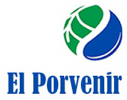
The next morning, we woke up bright and early in preparation for the community meeting at 8am. We crawled out of our mosquito nets, which probably saved us many bites, and slowly got into action. I went to get my soap from the ledge of the school, which I had used to wash my hands before dinner the night before, and it was gone. It looked like the kids visiting us last night had taken it. I was a little frustrated, but it is hard to begrudge them - they need it more than I did.
The culture is definitely different than the usual Nicaraguan "Mestizo" culture. We weren't there long enough to get many of the nuances, but one thing I did notice was that they had no qualms about asking for things. They asked for our flashlights, money, food, knives, you name it... In the Mestizo culture, this is also true that some people will ask for gifts, but it was much more the case here than I am used to. The male domination seemed more prominent as well here, although in the meeting, the women weren't shy about speaking up, and we did make a point of asking them. When we had to reschedule the meeting, it was only the men that came to talk to us and make the decisions. Perhaps it was because we were all men as well in the group this time, but it did seem that men made most of the community decisions.
We did learn a couple of words in Miskito (not enough for the meeting though): "Nakisma" is hello, "pen" is well or good and "tinki" is thank you. Even so, I may not have these exactly right.
 |
| Right side of the crowd |
We had the meeting in the same school where we had slept. We ate breakfast around 8am, but somewhat fortunately, this community was typically Nicaraguan and arrived late, giving us a chance to eat. It was standing room only in the schoolroom, there must have been 40-45 people. It was a tri-lingual discussion, as I introduced Mark and James, although we mostly spoke in Spanish and Miskito afterwards as we got into a very interesting discussion. The community seemed very interested and willing to put in the sweat equity into the project - of course, we'll see when the project construction phase starts. It was positive sounding though; they built their own homes when they returned from the evacuation.
We heard the need for water and that was where the interest lay. The women from the area around the school told us of the problems carrying water and how there is now only one spot where they can get the water. The women from the other area beyond the military base told us they drank water directly from the stream. We explained to them our policy of giving priority to the latrines first and that we had already budgeted for 20-25 latrines here in Ulwasking. They argued that the water was the priority, but I think we more or less convinced them that having the latrines was equally important, especially before working on the water project, so as not to contaminate the water. Then we explained, if all goes well with that project, then we can do the rest.
 |
| This is the creek the children cross, calm now, but when it is rainy... |
After some long chats with the community leaders afterwards, we took the boat over to the other sector beyond the military base to see where they got their drinking water (it was on the way back anyway). They explained to us that they also needed a bridge over the creek, as one of the children almost died last year crossing it in the rainy season. Since the school was in the other sector, they wanted to build a bridge, or a school for their sector. I explained that we don't have any school or bridge building expertise, but that I would mention the need to another NGO that I knew...
 |
| Top view of the stream crossing |
 |
| Mark shows us where they collect water for drinking |
We went to the stream and saw where they gather water - and also noted some women washing just upstream from there. Obviously, this was contaminated water they were drinking. Hopefully, we can build one project that can serve both sectors, or else do 2 projects. We will send our new engineer, Marlon, out here soon to see what ideas he comes up with...
 |
| It may be hard to tell, but this woman is washing upstream from the water collection point. |

So, after some last words of parting with the families, we got back in the boat for the return trip upstream. It was a little longer returning, but other than that, very similar to the day before. One difference was we stopped for lunch in Honduras this time. No border control and you can pay in córdobas or lempiras - no problem.
So after that international stop, we continued and went on towards Terrabona, León and Managua...
I will update you on Ulwasking in the future as we get news. By mid-year we hope to have some news on the first latrines...












